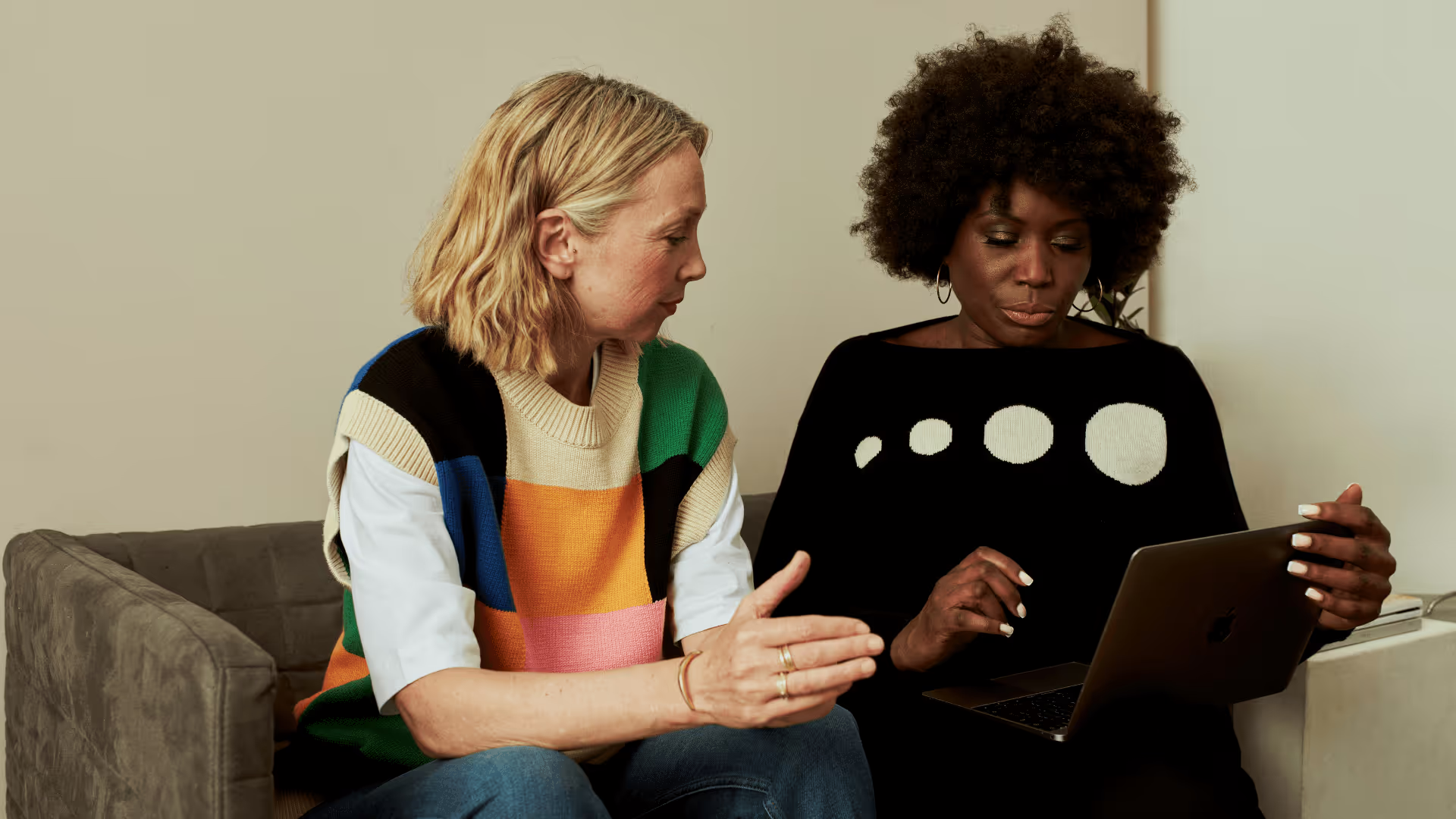Why Sustainability is Important in the Fashion Industry Today
Sustainability isn’t just an ethical decision, it’s also sound business strategy. Today’s customers pay careful attention to the environmental impact of their purchases – smart brands are following suit. For more details, read our latest blog.

What Is Sustainable Fashion?
Sustainable fashion refers to clothing and accessories created with environmental consideration. It is typically made in a way that is better for the planet than fast fashion and often focuses on reducing waste through upcycling and recycling, plant-based, biodegradable or organic materials that require less water and non-toxic dyes. Longevity is another key element of sustainable fashion. Designs are made to last a lifetime or to be easily repaired over time.
Why Businesses Should Care About Sustainability
Sustainability is no longer merely an ethical choice. As consumers and, in turn, retailers become more eco-conscious and demand brands to showcase their sustainability credentials, not caring about sustainability can affect your brand’s reputation, profitability and survival in the market.
Consumers have more trust and loyalty to brands that are transparent about their supply chain and practices, with Gen-Z consumers in particular choosing to invest in businesses that align with their values.
4 Powerful Reasons Why Sustainable Fashion Matters
1. Sustainable Fashion Build to Last
The fashion industry produces 8-10% of annual global carbon emissions, and is the second largest industrial consumer of water. That’s why smart, forward-thinking brands are building sustainability goals into their process from the very beginning.
JOOR allows retailers to filter brand search options by keywords like sustainability and diversity to ensure they can always locate brands that resonate with their mission and goals.
2. Sustainable Fashion Lowers Environmental Impact
Saving energy not only lowers your environmental impact but also helps cut costs. For example, today’s energy LED lighting options use a quarter of the energy of traditional incandescents, while also tending to spread light more evenly. Switching bulbs is a simple way to see how businesses can meet sustainability goals while adding directly to their bottom line.
The worldwide shutdowns induced by the pandemic gave us more examples. They dropped CO2 emissions by more than 5% in the first months of 2020, largely due to a massive shrinkage in world transportation. Although that drop did not last, the shutdown permanently changed many businesses’ perspective on travel. Why create those emissions and pay those costs when digital options are widely available?
At JOOR, 80% of our retailers say that digital buying has curtailed their need to travel. 39% cite a drop in travel of 50%, which represents a significant savings of time, energy, and money, and also supports sustainability goals.
3. Sustainable Fashion Protects Life — Human and Animal
Sustainable fashion is fairer to the people who produce it. Having a transparent supply chain that consumers can see pushes brands that haven’t already to implement ethical labor practices. This includes adopting fair wages and enforcing safer working conditions.
Sustainable brands are usually more focused on animal welfare, too. They comply more strictly with animal welfare standards and have more humane treatment certifications, as well as a stronger reliance on vegan fabrics and cruelty-free alternatives to animal-based materials.
4. Sustainable Fashion Strengthens Communities and Consumers
Sustainability often prioritises local sourcing, which helps brands to reduce their carbon emissions and also gives them the chance to support local communities that are experts in a craft.
Consumers tend to feel more connected to brands when they know who the makers of a garment are and are often willing to pay more for locally made or artisan-crafted items.
How Brands Can Start Their Sustainability Journey
If you are looking to improve your credentials, here are five steps to make your brand more sustainable you can take today.
Five Steps To Be a More Sustainable Brand
- Switch to eco-friendly fabrics: where you can consider using organic cotton, linen and hemp in new collections.
- Rethinking your packaging: try to transition to recycled, biodegradable or plant-based alternative materials.
- Improve your supply chain: this could include creating a more circular business model, working with more ethical suppliers or choosing more energy-efficient methods of production.
- Adopt digital tools: digital practices can provide you with more data, which can help you reduce overproduction and waste.
- Be transparent with consumers: avoid greenwashing by letting customers know the sustainability practices you are implementing, but also where your brand currently falls short, and how you’re looking to improve.
The Future of Sustainable Fashion
Sustainable fashion will only continue to grow in popularity. More and more resale platforms, rental apps and recycling initiatives are launching every week, as consumer demand for brands to take action against climate change shows no signs of slowing down.
Circular economy models and the adoption of digital tools will fuel the future of fashion, and both brands and the planet can prosper.
Conclusion
Sustainability is a long-term transformation, not an extra project. Businesses must balance people, planet, and profit to be successful, but those who commit to sustainable practices now will be stronger in the future.
Request a demo of JOOR today to learn how our platform can support your business in meeting its sustainability goals.
FAQs
What does sustainable fashion really mean for brands and consumers?
Sustainable fashion refers to clothing and accessories that are created with the planet in mind. They usually have a lower environmental impact than fast fashion and are built to last.
How can small or mid-sized fashion brands start adopting sustainable practices?
Making simple changes like switching to recyclable packaging materials, digitizing your wholesale process and designing collections with more environmentally-friendly fabrics are easy ways small and medium-sized fashion brands can improve their sustainability practices.
What are some examples of truly sustainable fashion brands today?
Some of the most popular sustainable fashion brands include Patagonia, Everlane, Reformation, Girlfriend Collective, Stella McCartney and Veja.
How can customers spot greenwashing in fashion marketing?
Avoid using generic terms and overarching phrases such as ‘we care about people/the planet’ without having evidence or data to back this up. Customers want to see brands take real action towards sustainability; otherwise, they view this kind of marketing as greenwashing.
Is sustainable fashion always more expensive than fast fashion?
Fast fashion is often cheaper than sustainable fashion as cheap labor, low-quality materials and unethical practices are used to produce it. Sustainable fashion costs more to create due to fair wages, quality materials and ethical labor, but this often means its perceived value is higher, so it can be sold for a higher price point.
How do digital wholesale platforms like JOOR support sustainability?
Digitizing your wholesale processes with JOOR improves your inventory management, reducing the amount of waste your brand creates. The software also gives you access to virtual showrooms, which can help you reduce your carbon emissions spent on international travel.
Related Insights
.png)
A Lookback on 2025 at JOOR
Reflect on the insights and innovations JOOR brought to the wholesale industry in 2025, from launching a new first-of-its-kind solution to expanding our global network of fashion brands and retailers.

Why Digital B2B Catalogs are Essential for E-Commerce Businesses
Online catalogs have become a crucial component for retailers and their buyers in an evermore tech reliant industry. Read about how these dynamic product libraries act as comprehensive selling solutions that plug into current buying behaviors.
%2520(2)%2520(1).avif)
8 Ways a B2B Fashion Marketplace Solves Wholesale Scaling Challenges
Learn how a B2B fashion marketplace like JOOR helps your wholesale fashion brand overcome scaling challenges. Maximize resources, build retailer relationships, and enhance distribution to drive growth in the global wholesale fashion market.


